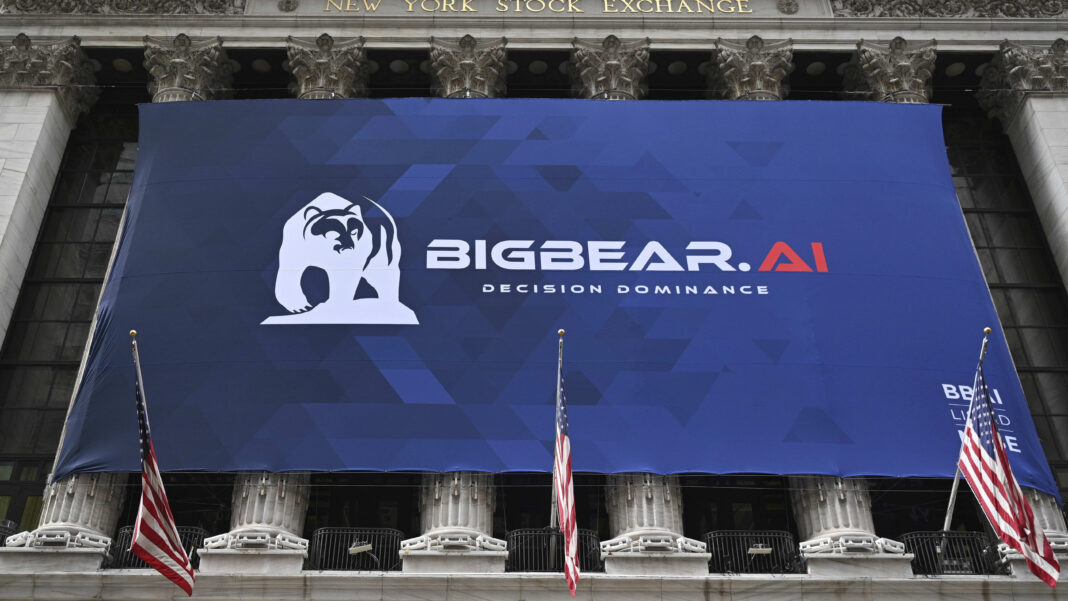In a strategic move that signals its deepening foothold in the defense sector, BigBear.ai has partnered with Austal USA to deploy artificial intelligence technology across the shipbuilder’s U.S. Navy submarine production operations.
The deal, announced this week, sent ripples through Wall Street, prompting a wave of investor interest and renewed discussion about the future trajectory of the Columbia, Md.-based analytics firm.
The company’s Shipyard AI® platform—an advanced machine learning solution designed to streamline heavy manufacturing—will be implemented at Austal’s shipyard in Mobile, Ala.
The objective: optimize the submarine-building process through predictive planning, resource allocation, and mitigation of production bottlenecks.
“By integrating AI into shipyard operations, we’re not just modernizing legacy systems—we’re reshaping how naval vessels are built in the 21st century,” said Mandy Long, CEO of BigBear.ai, in a statement.
“This partnership demonstrates the practical, high-impact value of AI in national defense manufacturing.”
A Play for National Security and Market Growth
The U.S. Navy, already facing mounting pressure to meet strategic submarine production timelines, sees digital transformation as a key to achieving its defense-readiness goals.
The Columbia-class submarines—among the Navy’s most expensive and critical next-gen assets—require precision planning across complex supply chains.
Industry analysts say the adoption of BigBear’s platform could accelerate submarine delivery schedules while potentially trimming millions in overhead.
“AI offers a path toward cost containment and increased throughput in a sector not known for speed or flexibility,” said Carla Mendoza, senior analyst at Beacon Intelligence Group. “BigBear is positioning itself as a force multiplier in defense contracting.”
Market Reaction: A Rising Tide?
BigBear.ai’s stock (NYSE: BBAI) gained over 12% following the announcement, climbing to $2.91 by Friday morning trading. While still well below its 2022 SPAC highs, the stock’s recent momentum has prompted bullish sentiment among some retail investors and institutional watchers.
Yet the picture isn’t entirely rosy. The company’s fundamentals remain a mixed bag, with persistent concerns about cash flow and profitability. As of Q4 2024, BigBear.ai reported $33.3 million in quarterly revenue—a 12% increase year-over-year—but posted a net loss of $9.2 million.
Still, investors seem willing to look beyond the balance sheet, banking on the long-term potential of defense contracts and government-backed technology deployments.
“With defense budgets rising and AI becoming mission-critical, BigBear is in the right place at the right time,” said James Hsu, a portfolio manager at SilverCap Partners. “This submarine deal could be a validation moment.”
All Eyes on May 1 Earnings
The company is scheduled to report its Q1 2025 earnings on May 1, and analysts will be listening closely for updates on defense sector revenue and backlog growth tied to the Austal partnership.
A strong report could further solidify BigBear’s reputation as an AI contender beyond the commercial space.
In a defense tech landscape increasingly shaped by digital twins, predictive logistics, and real-time analytics, BigBear.ai’s pivot could prove prescient—not only for the Navy, but also for investors hungry for the next chapter in applied artificial intelligence.
Also Read
ServiceNow’s Revenue Soars: What Investors Need to Know About Its Rapid Growth
What’s Happening to American Airlines? Exploring the 2025 Withdrawals, Route Cuts

